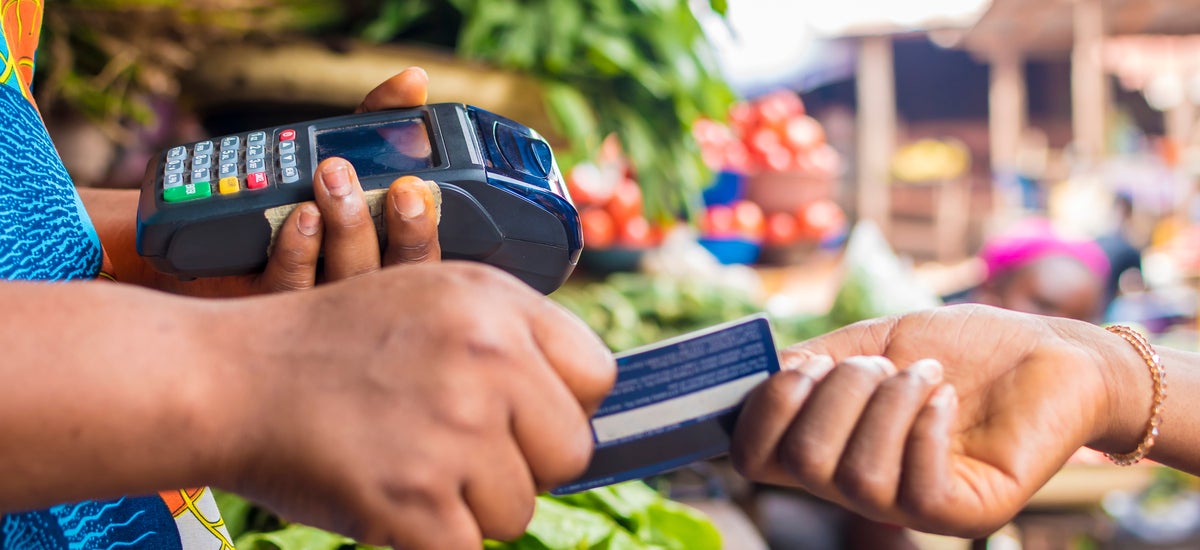
The COVID-19 pandemic has battered Latin American and Caribbean economies. Due to its large informal sectors, weak health systems, and fiscal restrictions, the region’s economy has been hit harder than any other declining by 7% last year—the largest GDP contraction since 1821. But unlike previous crises, where problems originated or were exacerbated in the financial sector, financial markets have been part of the solution, a phenomenon greatly enhanced by the acceleration of digitalization and financial inclusion over the last year and a half.
Fintechs (financial technology firms), banks, cooperatives, and other financial institutions, rising to the challenge, made a large effort to reach unbanked citizens. Policymakers provided the necessary infrastructure and policies to bring millions of unbanked citizens into the banking system and quickly deploy resources to vulnerable businesses. Huge amounts of aid were distributed through digital platforms. In April, to cite one example, the Colombian government expanded cash transfer payments to over 3 million households, 70% of which were previously unbanked.
As the region faces the immense challenges of economic recovery, the need to accelerate these efforts at digitalization and financial inclusion and build back better could not be greater. That is why the IDB has launched a financial inclusion hub, known as FINLAC, to promote greater knowledge sharing of up-to-date market data, effective policy experiments, successful investment transactions, effective technical assistance projects, innovative business models, and dynamic partnerships. The idea is to make financial inclusion a key part of economic transformation, treating it not as part of a niche market, but rather as a natural extension and characteristic of a modern financial system.
Such efforts at greater digitalization and financial inclusion will be crucial to bringing the more than 200 million citizens in the region who lack access to financial services into the modern economy. They could also help deliver capital to micro and small-scale businesses, which generate much of the employment in the region, and allow them to benefit from integration into local, regional, and global value chains through access to electronic payments infrastructure. In this way, the digital transformation and financial inclusion of small and medium-sized enterprises (SMEs) and the economic empowerment of traditionally excluded or underserved groups—a key pillar of IDB Group’s Vision 2025—will help reform and invigorate the region’s battered economies.
The IDB Group has nurtured financial inclusion throughout its 62-year history. It is now at a pivotal moment. The economic recovery is creating a demand for much greater financial resources. New digital technologies are showing tremendous potential to transform the financial sector and quickly scale up outreach, and consumers are increasingly embracing digitalization in their daily lives. Moreover, both the private banking sector and governments have demonstrated that they are eager to embrace the new technologies and bring underserved groups into the financial system.
FINLAC will advance these causes at first by trying to ensure that financial inclusion is a top priority for the region’s financial systems and that there is progress in the use of digital payments and growing digital innovation throughout the region’s economies. But there are many ideas to explore. Everyone is invited to participate with ideas, comments and suggestions.
Latin America and the Caribbean face one of the most critical moments in its history after the immense economic contraction and disruption wrought by the COVID-19 pandemic. The future of an entire generation is at stake. We are happy to present FINLAC with the conviction that greater knowledge around digitalization and financial inclusion can help rectify the region’s currently grave situation and contribute to relief for some of its most vulnerable people.


Leave a Reply